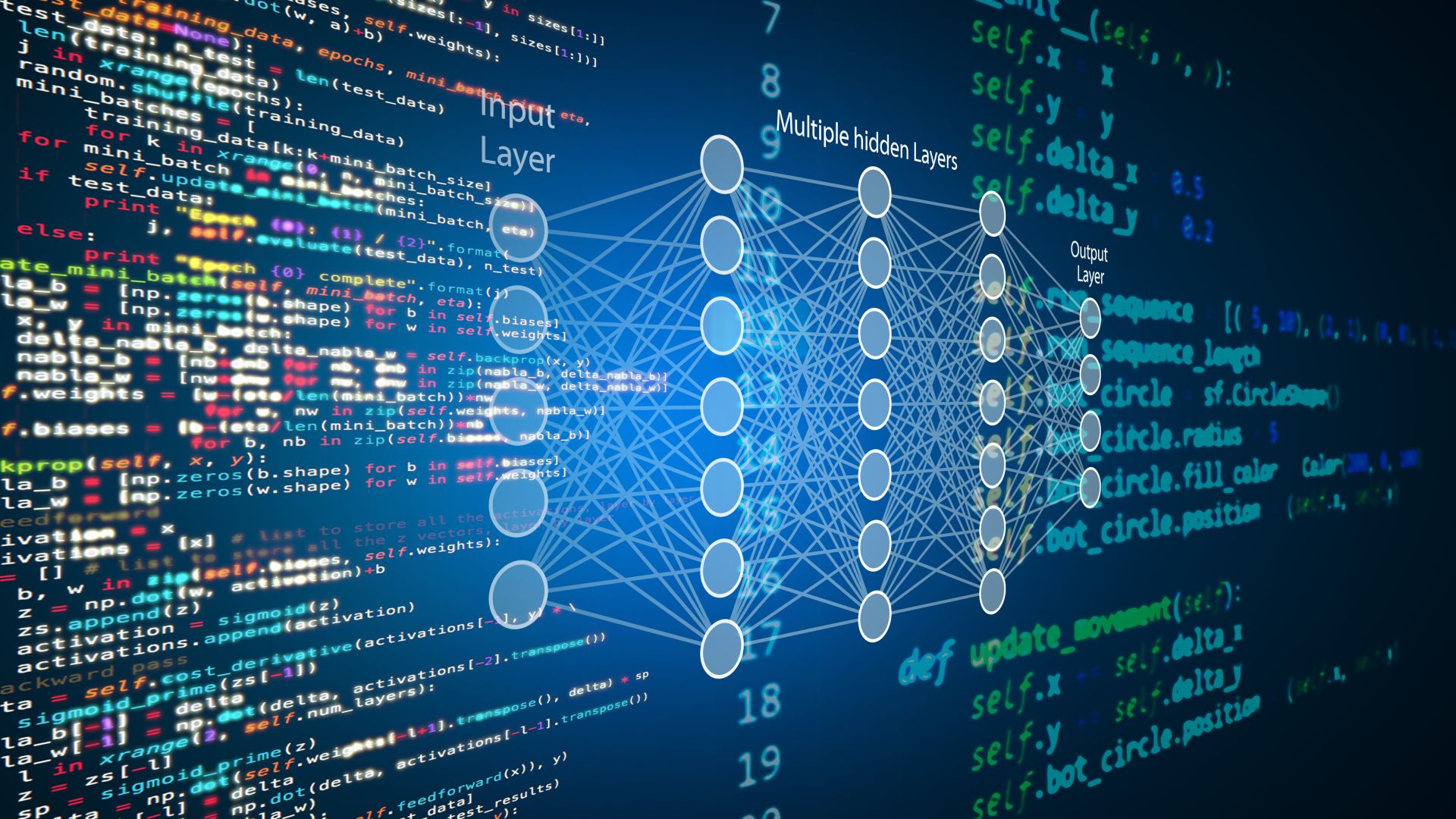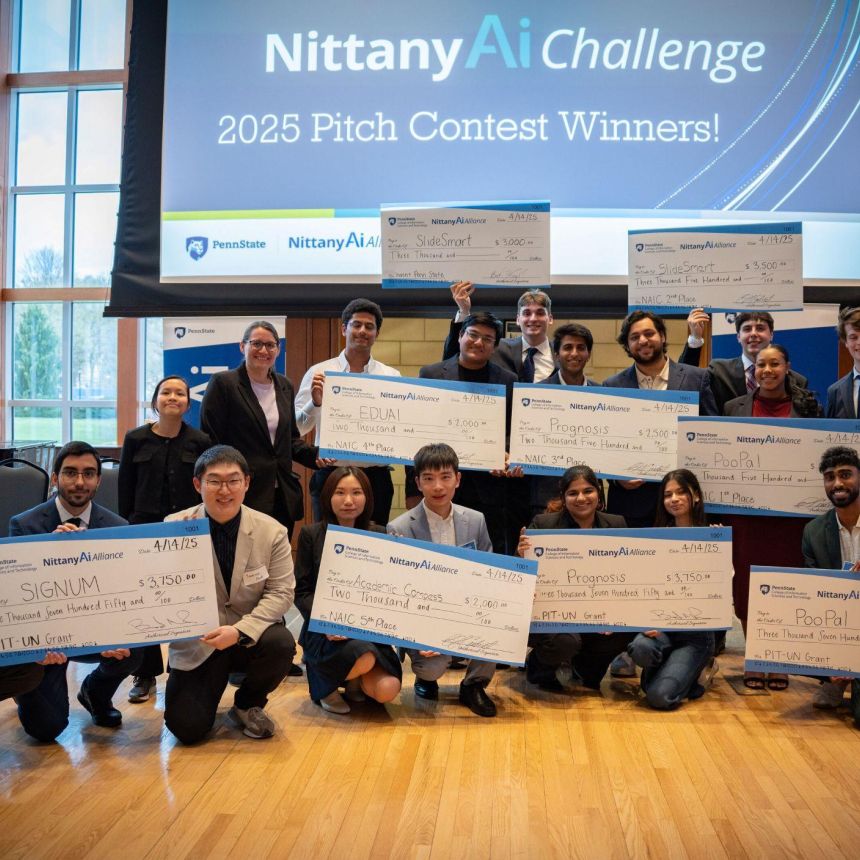
B.S., Artificial Intelligence Methods and Applications
Artificial intelligence is extending human capabilities and expanding what's possible.
Recent breakthroughs demonstrate AI's potential to address humanity's most pressing challenges while transforming how we discover, create, and solve problems. The B.S. in Artificial Intelligence Methods and Applications (AIMA) prepares you to lead this revolution, not only by building intelligent systems but also by applying AI responsibly to some of society's most complex and important challenges. Through an innovative curriculum, hands-on projects that mirror real-world complexity, and an emphasis on ethics and impact, you'll gain the technical skills to design and deploy robust AI solutions and the insight to ask: What should we build and why? How do we accommodate real-world constraints? And how do the technologies we develop impact humanity?
Is Artificial Intelligence Methods and Applications Right for Me?
Artificial Intelligence Methods and Applications combines technology with math, programming, computer science, psychology, law and policy, and ethics to address complex real-world problems. This program could be a great fit if you want to
- translate AI capabilities into useful applications across diverse fields
- design AI systems that enhance human judgment, discovery, and creativity
- balance technical excellence with ethical reasoning, effective communication, and interdisciplinary collaboration
- lead responsible AI initiatives in in organizations ranging from tech companies to research institutions, government agencies, and nonprofits

What You'll Study
Gain foundational knowledge and state-of-the-art skills needed to design and deploy AI-based solutions by exploring topics like these.
- Artificial Intelligence – The Very Idea
- Knowledge Representation and Inference
- Automated Problem Solving
- Machine Learning
- Responsible Artificial Intelligence
- Human-Centered AI
- Generative AI Methods and Applications
Supporting Courses
You'll gain a deeper understanding by taking a series of technical supporting courses in fields like computer science, data sciences, electrical engineering or math to gain context for where you will do your work.
- Agricultural Sciences
- Business Fundamentals
- Enterprise Technology Integration
- National Security
- Philosophy
- Psychology

The Power of Internships
Most College of IST students complete at least one internship before graduating. In fact, more than 50% complete multiple internships and 84% receive a job offer from an internship provider. With hundreds of organizations recruiting and a dedicated Career Solutions team to support you, you'll have the tools and opportunities to launch your career.
View Past Internships
“This major empowers students to build intelligent solutions that enhance human capabilities while addressing real-world challenges. With a strong foundation in machine learning, generative AI and ethical responsibility, students gain the skills to innovate and shape the future of AI-driven industries. It’s the perfect path for aspiring AI pioneers."
Sharon Huang , David Reese Professor of IST
Discover Your Career
Technology is ever-changing, and so are the careers that create, use, and study it. As you work toward your degree, you’ll identify and refine your career interests through courses, student organizations, and experiential opportunities. With guidance and resources from our dedicated Career Solutions team—from your first job to the executive suite—you'll gain the technical expertise, business savvy, and communication skills to lead in business, health care, defense, technology, and countless other industries.
AI Researcher
Develops new AI algorithms and methods, often in collaboration with academic or research institutions.
IT Analyst
Analyzes and transmits specialized information, including acquiring, analyzing, indexing, and preparing abstracts. Manages technical information services, technology assessment, research support, and engineering services.
AI Engineer
Builds AI models from the ground up and explains results to product managers and stakeholders.
Business Intelligence Analyst
Designs and implements systems for data-driven decision-making, building dashboards, reports, and visualizations using business intelligence tools to present integrated business insights.
Data Scientist
Collaborates with data providers and users to define questions and use machine learning and data mining to develop predictive models, uncover insights, and forecast outcomes.
Machine Learning Engineer
Focuses on research, development, and design of automated AI systems for data classification, pattern recognition, and predictions, developing machine learning algorithms to create predictive models.
AI Software Developer
Develops AI software by designing algorithms, writing code, and collaborating with teams to build intelligent systems that solve complex problems or automate tasks.
Natural Language Processing Specialist
Develops AI models for language-related applications like speech recognition, chatbots, and text analytics.
Technology Advisor
Provides expert advice and detailed information in a specialized field, guiding organizations to ensure safe, effective practices and informed decision-making in complex or high-risk scenarios.

Nittany AI Alliance
Through mentored research, student organizations like Nittany Data Labs, and experiential learning opportunities like those offered through the Nittany AI Alliance, Artificial Intelligence Methods and Applications students can extend learning far beyond the classroom. Nittany AI Alliance connects students with industry partners to address real-world problems with AI-based solutions. Through challenges, internships, and events, you can put your data sciences knowledge to work.
Connect with Nittany AI